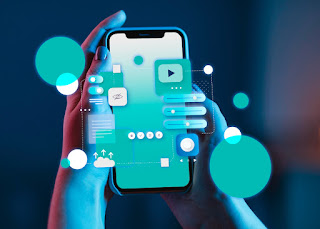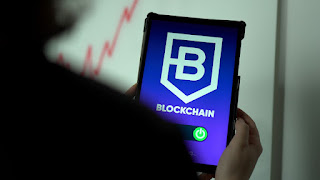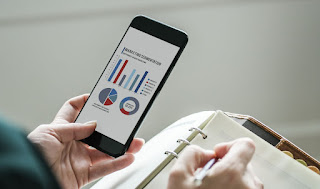5 Hot Trends in Mobile App Development
Are You Excited About The Future Of Mobile App Development?
Do you ever wish that your mobile apps could do so much more? The year 2023 is shaping up to be a big one for mobile app development. The next generation of mobile app development is here, it’s all about creating more interactive, intelligent, and immersive apps.
The rising popularity of new trends such as AR/VR, 5G, AI, and much more will change how we interact with technology. Businesses that want to stay ahead of the game need to have a clear vision of the future.
Trends in 2024
Augmented Reality (AR) and Virtual Reality (VR):
Have you ever wondered what it would be like to fight a dragon or explore new
places without leaving your couch? Thanks to AR/VR technologies these experiences are possible. AR allows users to overlay digital information in the real world, while VR creates a completely immersive experience. AR and VR are two of the most exciting technologies in mobile app development. They have the potential to revolutionize the way we interact with the world around us. Technavio’s research predicts $125 billion growth in the global AR/VR market in 2022-2024.
Examples
AR/VR can be used in a wide range of industries.
Gaming: There are several AR/VR games available, such as Pokemon Go and Beat Saber. These games allow users to interact with digital characters and objects in the real world.
Healthcare: AR and VR can be used to train medical professionals or to provide patients with therapy. For example, surgeons can practice procedures before performing them on real patients.
Retail: AR/VR can be used to help customers visualize products or to provide them with a more immersive experience. For example, Makeup brands have introduced virtual try-ons, making online shopping easier.
AR/VR is still in its early stages and many challenges and limitations come along such as the high costs of AR/VR devices, limited content, and the need for extensive hardware, etc. But it can potentially transform the mobile app market.
Artificial Intelligence (AI):
What if your mobile apps could learn from your behavior and predict what you need before you even ask? AI is a rapidly growing technology, and it's having a major impact on mobile app development. AI can be used to automate tasks, personalize user experience, provide better data analytics, and so on. It is a valuable tool for developers to create more efficient and user-friendly apps. According to IOT analytics, the CARG of Global Industrial AI market size is expected to grow by 31% by 2025.
Examples:
Chatbots: Chatbots are AI-powered programs that can stimulate conversation with humans. They are often used in customer service apps to answer questions and provide support.
Personalized Recommendations: AI can be used to recommend products, services, or content to users based on their past behavior. This is commonly used in e-commerce apps like Amazon.
AI is still a relatively new technology and the cost of maintaining and developing AI is very high, but it has the potential to reshape the app development industry. By automating tasks, and improving the accuracy of predictions. As the technology continues to develop, we can expect to see even more exciting and ground-breaking AI-powered mobile apps.
Internet of Things (IoT):
The Internet of Things refers to the network of physical devices that are connected to the Internet. These devices can collect and share data, which can be used to create more intelligent and connected mobile apps. The global IoT market is expected to reach $1.9 trillion by 2025. It can be used to create healthcare applications. IoT can be used to monitor patient’s vital signs, and medication intake and provide remote care. It can also be used in manufacturing applications to improve efficiency or productivity. IoT can be used to monitor equipment, track production data, and optimize supply chains.
Examples:
Smartwatches: Smartwatches collect data about the user’s heart rate, steps taken, and sleep patterns. This data can be used to give personalized fitness suggestions.
Home Appliances: Home appliances such as thermostats, security cameras, and lights can be connected to the internet. This allows users to control these devices remotely or to receive alerts about their status.
IoT is a swiftly growing technology. By connecting physical devices to the internet, it can create intelligent and connected mobile apps that can enhance our online experience.
Cloud Computing:
How can you create an app that can handle millions of users? Cloud computing is revolutionizing the way mobile apps are developed. By storing and processing data and applications on remote servers, cloud computing can free up space on mobile devices and improve the performance of apps. It can improve the performance of mobile apps by up to 30%. Many companies provide cloud computing services such as Google Cloud, Amazon Web Services, Microsoft Azure, etc.
Examples:
Game Development: Cloud computing can be used to store and process data and graphics for games. This can free up space on mobile devices and improve the performance of games.
E-Commerce: Cloud computing can be used to store and process the data for e-commerce apps, improving their performance and making them more scaleable.
Cloud computing is a powerful tool that can help mobile developers build better, more performant, and more scalable apps. This allows users to have a smooth experience without having extensive hardware.
Blockchain:
What if you could make transactions without a bank? Blockchain is a distributed ledger technology that allows secure, transparent, and tamper-proof transactions. This makes it a promising technology for mobile app development, especially for apps that need to monitor transactions or manage sensitive data. The global blockchain market is expected to reach $23.3 billion by the end of 2023.
Decentralized applications run on blockchain networks, they are not controlled by any central authority which makes them more secure and transparent. Smart contracts are self-executing contracts that are stored on a blockchain network, they can be used to automate transactions and reduce the need for intermediaries.
Examples:
Voting Apps: Blockchain technology can be used to create secure and transparent voting systems. This can help to reduce fraud and increase voter participation. VotingWorks is a blockchain-based voting platform being used in Estonia.
Financial Apps: Blockchain can be used to track financial transactions, such as payments and loans. Everledger is a blockchain-based platform that tracks diamonds from the mines to the jewelers, helping to ensure that the diamonds are not mined illegally.
Blockchain is still in its early stages of development, It has a high cost of implementation but it is a technology to watch, and we can expect to see even more innovative and exciting applications of blockchain in the years to come.
Conclusion:
Mobile app development is continuously evolving, and the future looks promising. In the years to come, we will see these trends and many others making mobile apps more intelligent and interactive. With AR/VR bringing imagination to life, AI anticipating users' needs, IoT seamlessly weaving the physical world into digital, cloud computing providing us with a smooth experience, and Blockchain technology securing our data and assets the possibilities are endless. The question here is: How are you going to use these trends to reinvent the mobile experience for future generations?
For custom software development, visit us at Zee Palm
To buy premium front-end flutter kits, visit Flutter Coded Templates
Check out free Flutter Components, visit Flutter Components Library



Comments
Post a Comment